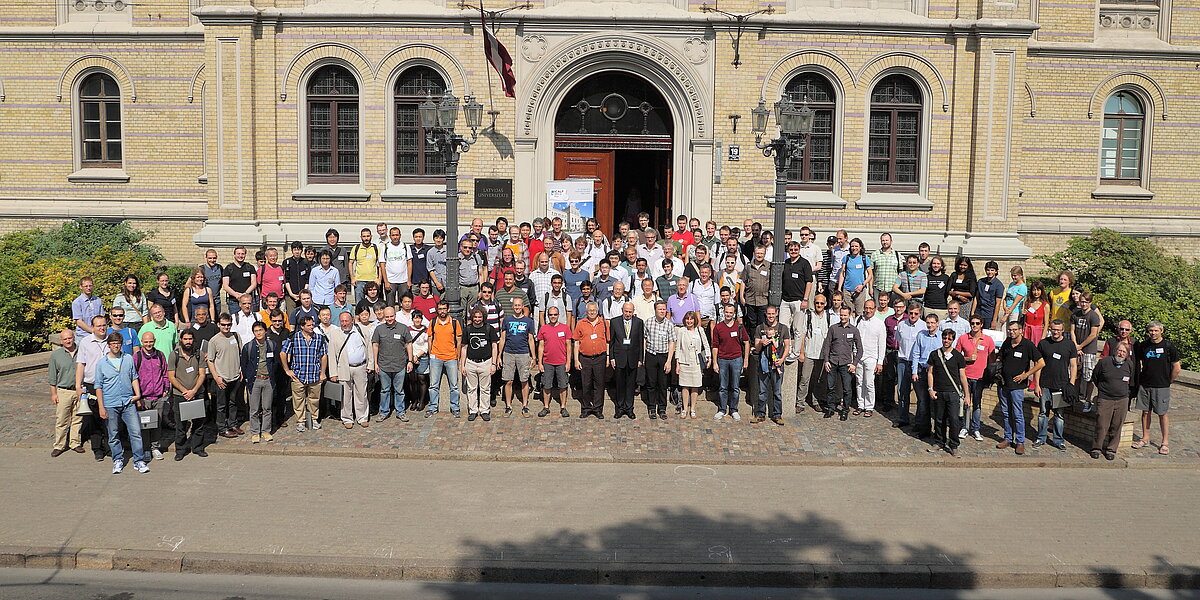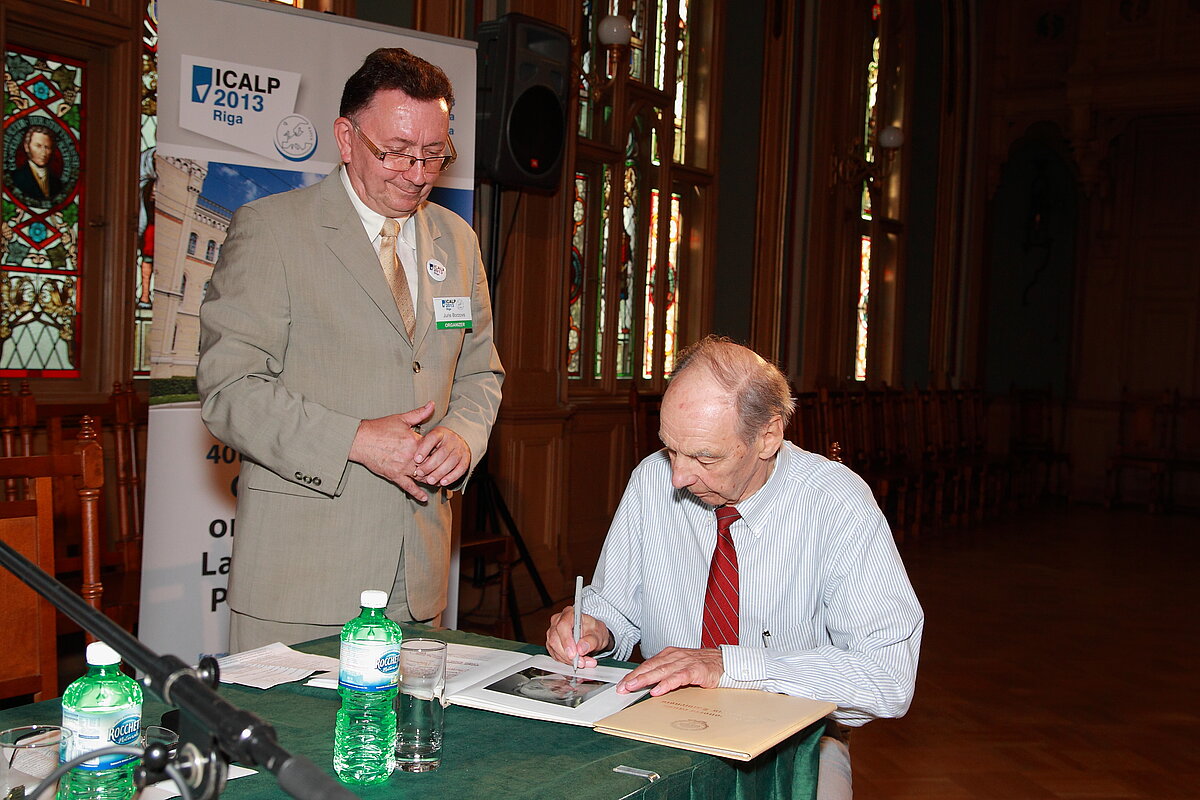
Employment guaranteed
This year, the highest number of student applications has been submitted to the University of Latvia (UL) Computer Science programme. It is actually not surprising, since computer science is a dynamic and developing academic sphere, and new professionals are needed in both the scientific and practical fields. Moreover, choosing these studies, one is almost guaranteed to get employment. In spite of a comparatively high number of state-funded places and those who wish to study, a lack of professionals can be observed in almost all practical fields: programming, system analysis, network administration and others.
Scientist and Professor Andris Ambainis explains that traditions of computer sciences in Latvia took hold already in the 1950s and 60s. At the time, Latvia was one of the first places in the Soviet Union where attempts were made at building computers, resulting in a strong school of computer science theory, led by researchers Rūsiņš Mārtiņš Freivalds and Jānis Visvaldis Bārzdiņš.
“They are world class scientists, well-known in the USA. When it comes to this, I am happy to say without any hesitation that I was born in Latvia,” says Juris Hartmanis, a remarkable USA Cornwell University scientist of Latvian origin. Hartmanis, whose research forms the foundation of contemporary computer science, has also received the Turing Award, the highest distinction in computer sciences. During the conference, Hartmanis was awarded a UL Honorary Doctorate. The scientist regards it as an honour; in his early youth he wanted to be a student at the University of Latvia, but the Second World War changed the fate of his family.
Catching the train
Latvian scientists have gained great achievements in several fields of computer science. First of all, the success in quantum computing research deserves mentioning. Methods developed by Prof. Andris Ambainis and his student, doctoral candidate Aleksandrs Belovs, are being used and further developed worldwide. In this field, Latvian researchers are among world leaders who are attempting to determine the capabilities of future quantum computers. Second of all, a research group led by Leo Seļāvo is developing the field of computer science dealing with wireless sensor networks and robotics, for example, by taking part in international contests where scientists are given a task to build self-driving machines. It is also worth mentioning Uldis Bojārs and his successful participation in the research of next generation web technologies and semantic web. Other fields highly developed in Latvia include information system development and the related scientific problems and computer graphics.
According to Professor Ambainis, computer science is developing rapidly, therefore, it is essential to follow the latest trends. “So that we do not end up only in two or three carriages of the computer science train, failing to catch the rest of it. When I went to study at the University of California, Berkeley in 1997, I was very surprised to find so many things I had never even heard of before,” says Ambainis. Taking into account that the UL is small in comparison with other computer science centres all over the world, it is obvious that all fields cannot be developed equally. “Although the difference is diminishing, some spheres still lack an academic level, for example, no one has published a doctoral dissertation on information security or encryption. There are some courses that might be useful for someone who wishes to work in computer programming, but no profound academic programme,” states Ambainis.
Going abroad to expand horizons
There is one thing the mentioned academicians have in common – they have all formed their academic and scientific careers abroad and strengthened poorly developed scientific fields after returning to Latvia. From this perspective, scientists temporarily leaving Latvia can be considered a positive tendency, as they return bringing new trends and helping poorly developed fields to prosper. “Computer science is a very dynamic industry and new directions emerge every five to ten years. Students should realize that half of all the information acquired will be outdated already by the time they finish studies,” explains Ambainis. “It is each person’s individual choice. I don’t try to discourage students from taking up doctoral studies abroad. Leaving to do field-work abroad after completing the studies in UL is a reasonable option as well and I support students who choose to do so. Three of my students have chosen studying abroad, while one student, the already mentioned Aleksandrs Belovs, has stayed and graduated from the UL. His example shows that it is possible to achieve good scientific results in this country as well; but on the other hand, if everyone stayed, there would be nobody to bring in new trends. Those three who have left pursue scientific directions that are not represented on a profound level in Latvia yet.”
Success is the result of hard work
When asked about the key to success, Ambainis points out that it all depends on the student. “Interest in computer sciences and hard work are a must. Actually, it is necessary to start working already in secondary school because those who have achieved something started with programming classes at school. Even though it is not mandatory and 80% of computer science students have never programmed before, it is a great advantage for those who have already done it. Then comes hard work in the university, participation in as many study activities as possible, individual work with professors, programming competitions and independent studying of scientific literature.”
It appears that there are preconditions for computer science to continue developing in Latvia in the already existing and new directions, since the UL can offer a rather close cooperation with teachers already from the first study years. “When it comes to the highest study levels there knowledgeable leader is needed. For me it was Professor Freivalds and now I am playing this role myself. The leader has to be an active member of the international scientific community. I hope that in a long term there will be more people like that,” says Ambainis.
Translated by students of the professional study programme Translator of the University of Latvia.
Translated by students of the professional study programme Translator of the University of Latvia.

 CONFERENCE
CONFERENCE